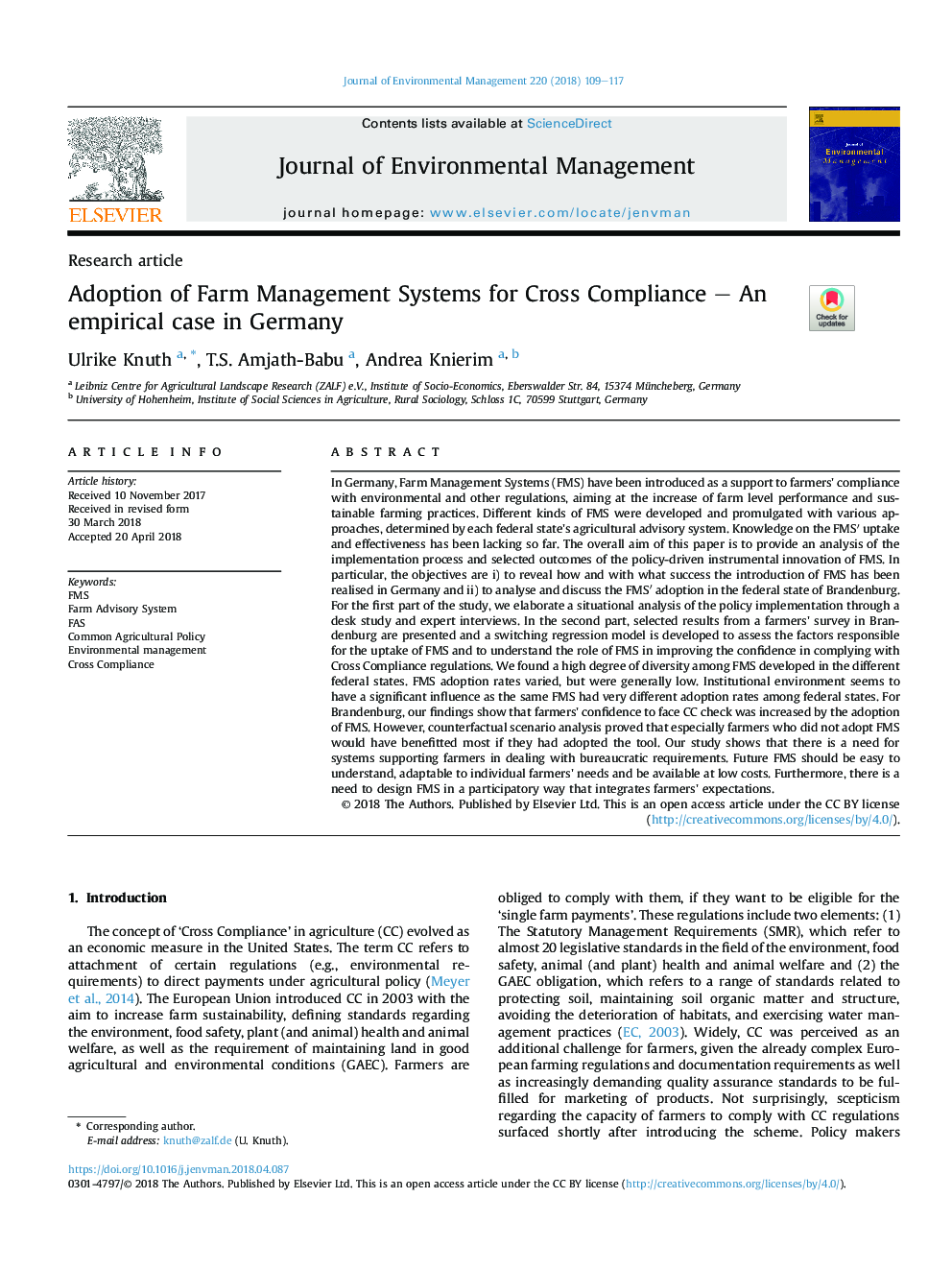| کد مقاله | کد نشریه | سال انتشار | مقاله انگلیسی | نسخه تمام متن |
|---|---|---|---|---|
| 7476450 | 1485198 | 2018 | 9 صفحه PDF | دانلود رایگان |
عنوان انگلیسی مقاله ISI
Adoption of Farm Management Systems for Cross Compliance - An empirical case in Germany
ترجمه فارسی عنوان
تصویب سیستم های مدیریت مزرعه برای پیروی از صلیب - یک پرونده تجربی در آلمان
دانلود مقاله + سفارش ترجمه
دانلود مقاله ISI انگلیسی
رایگان برای ایرانیان
کلمات کلیدی
موضوعات مرتبط
مهندسی و علوم پایه
مهندسی انرژی
انرژی های تجدید پذیر، توسعه پایدار و محیط زیست
چکیده انگلیسی
In Germany, Farm Management Systems (FMS) have been introduced as a support to farmers' compliance with environmental and other regulations, aiming at the increase of farm level performance and sustainable farming practices. Different kinds of FMS were developed and promulgated with various approaches, determined by each federal state's agricultural advisory system. Knowledge on the FMSâ² uptake and effectiveness has been lacking so far. The overall aim of this paper is to provide an analysis of the implementation process and selected outcomes of the policy-driven instrumental innovation of FMS. In particular, the objectives are i) to reveal how and with what success the introduction of FMS has been realised in Germany and ii) to analyse and discuss the FMSâ² adoption in the federal state of Brandenburg. For the first part of the study, we elaborate a situational analysis of the policy implementation through a desk study and expert interviews. In the second part, selected results from a farmers' survey in Brandenburg are presented and a switching regression model is developed to assess the factors responsible for the uptake of FMS and to understand the role of FMS in improving the confidence in complying with Cross Compliance regulations. We found a high degree of diversity among FMS developed in the different federal states. FMS adoption rates varied, but were generally low. Institutional environment seems to have a significant influence as the same FMS had very different adoption rates among federal states. For Brandenburg, our findings show that farmers' confidence to face CC check was increased by the adoption of FMS. However, counterfactual scenario analysis proved that especially farmers who did not adopt FMS would have benefitted most if they had adopted the tool. Our study shows that there is a need for systems supporting farmers in dealing with bureaucratic requirements. Future FMS should be easy to understand, adaptable to individual farmers' needs and be available at low costs. Furthermore, there is a need to design FMS in a participatory way that integrates farmers' expectations.
ناشر
Database: Elsevier - ScienceDirect (ساینس دایرکت)
Journal: Journal of Environmental Management - Volume 220, 15 August 2018, Pages 109-117
Journal: Journal of Environmental Management - Volume 220, 15 August 2018, Pages 109-117
نویسندگان
Ulrike Knuth, T.S. Amjath-Babu, Andrea Knierim,
